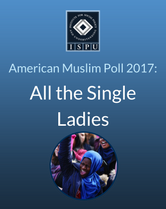
All the Single Ladies
Marriage is a perennial topic in American Muslim circles—alternatively a source of joy or anxiety depending on the context. On the one hand, the centrality of marriage should come as no surprise given the numerous textual prescriptions (both in Quran and hadith) lauding and encouraging the institution. On the other hand, the concept of marriage can take on heightened significance—and urgency—as the community watches society at large increasingly forego marriage.
If one were to simply extrapolate from general population data in the US, it would seem that these community elders are well within their right to worry. Since 1970, the proportion of married US adults has fallen nearly 20 percentage points, while about half of all adults question the societal value of marriage altogether. Yet, when we turn to ISPU’s 2017 polling data, we find that Muslims (controlling for relevant demographic variables) are actually more likely to be married than any other major faith group or the non-affiliated (see Figure 1).
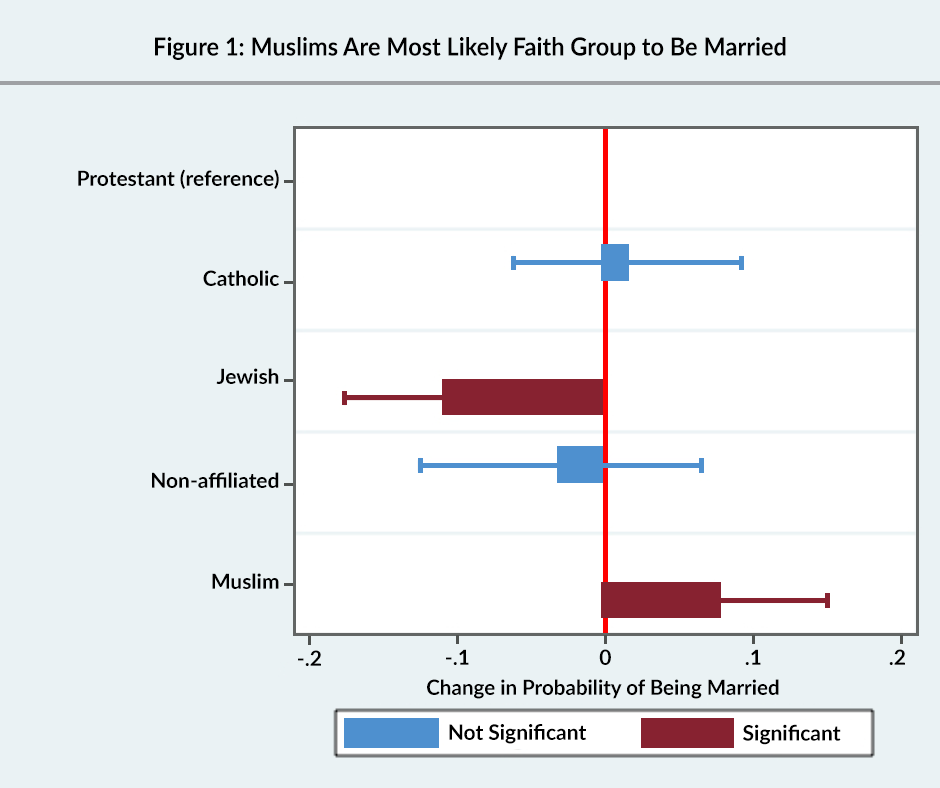
Yet, even if Muslims as a whole outpace other comparable groups in marriage rate, the likelihood of being married may vary across key demographics. Figure 2 plots the probability of being single among American Muslims in our sample and reveals that men are more likely than women to have never married and that, not surprisingly, Muslim singles skew younger. Notably, however, the strongest determinant of single status among American Muslims is nativity, with the US-born nearly 25% more likely than their foreign-born counterparts to have never married. Perhaps, then, the worries of communal aunties and uncles is not entirely without merit.
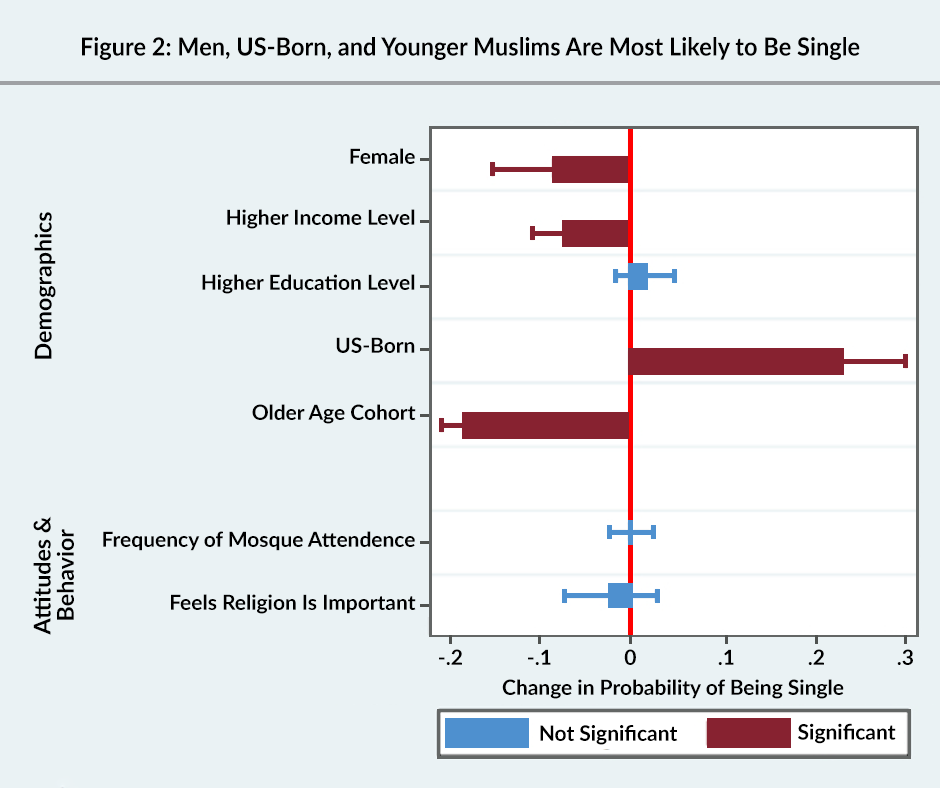
Figure 3 dives a bit deeper, revealing differences between American Muslim single men and single women. On average, we find that single Muslim women are statistically younger, more educated, and more religiously inclined than single Muslim men—disparities that are absent, for the most part, in the general public (see Figure 4). Since we do not have data from other time periods, it is hard to say whether this has always been the case in the Muslim community or whether these gaps are the result of recent trends. What is clear, however, is though there are more single Muslim men than Muslim women, single Muslim women may struggle to find a spouse as educated or religious as they are. The full implication of this gap, unique to Muslims in comparison to the general public, is yet unknown. Yet, it does suggest a unique social challenge faced by Muslim singles looking for spouses of comparable education and religious devotion.
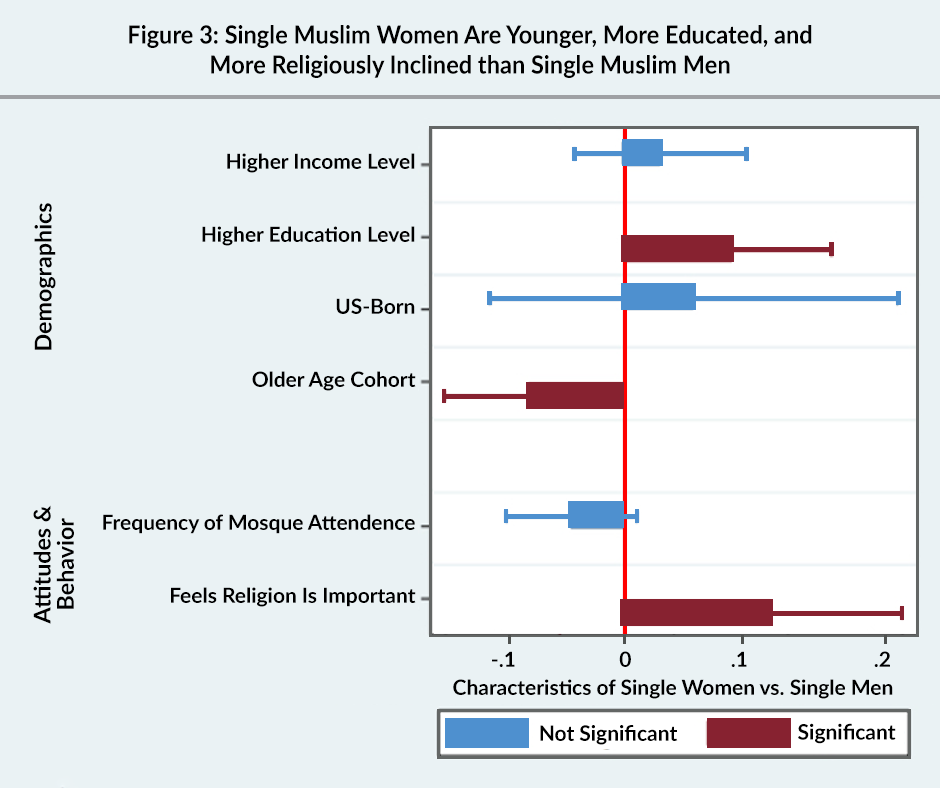
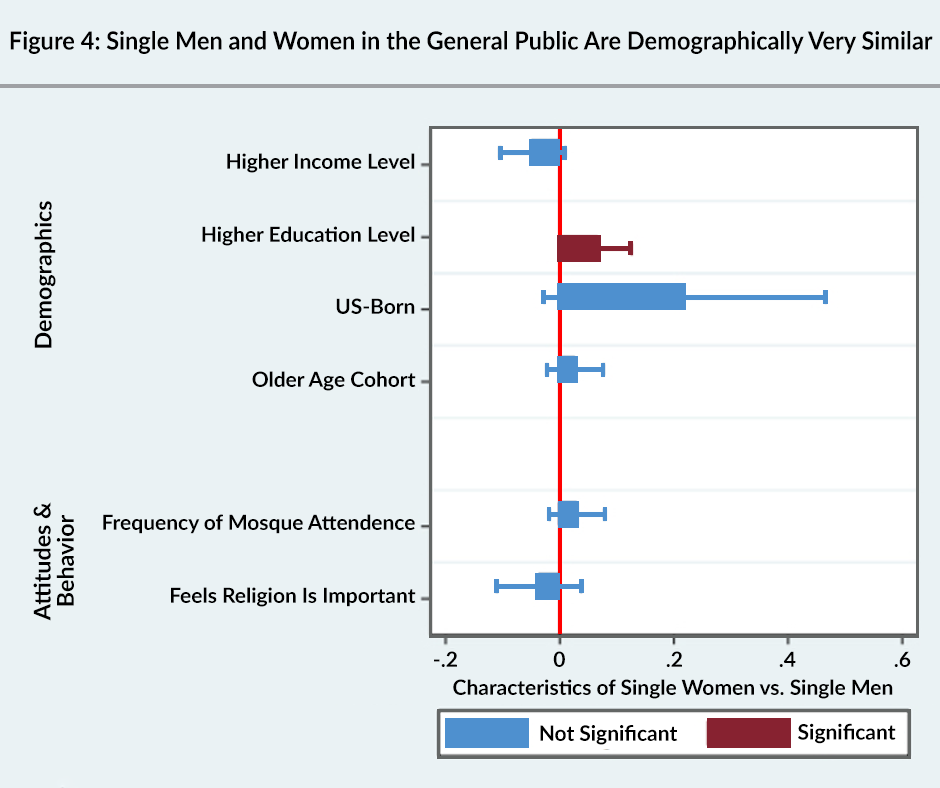
NOTE: The plotted results in Figures 1–4 indicate the predicted change in the probability of the highlighted outcome as the variable of interest goes from lower to higher values (or in comparison to another category, as in the case of “US-Born” and “Female”). For ease of presentation, race/ethnicity was included in the analyses but not in the figures.
*The photo in our title image is courtesy of Samantha Madar / MLive / Advance with credits
Youssef Chouhoud is a PhD candidate in the Political Science and International Relations program at the University of Southern California. As a Provost’s Fellow, his research interests include political attitudes and behavior, survey methodology, and comparative democratization. He is an ISPU Scholar and was the co-author of our 2017 American Muslim Poll.


